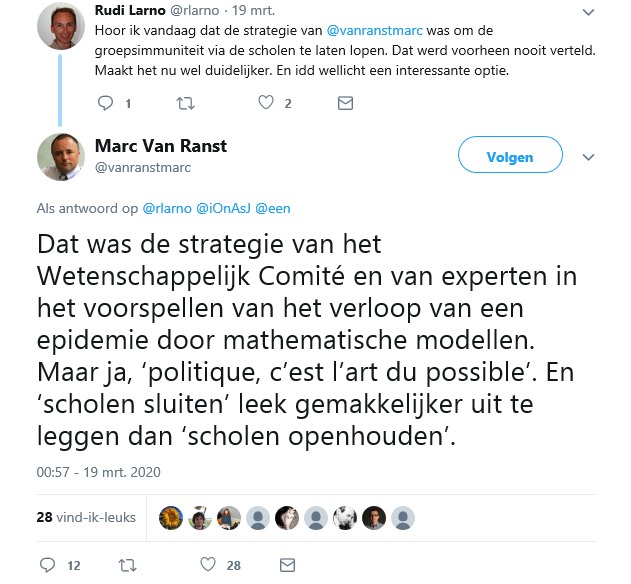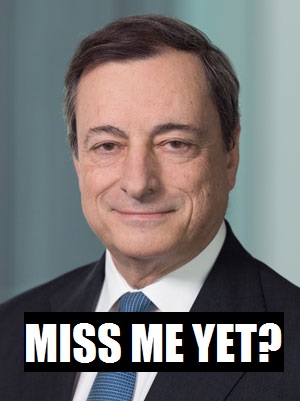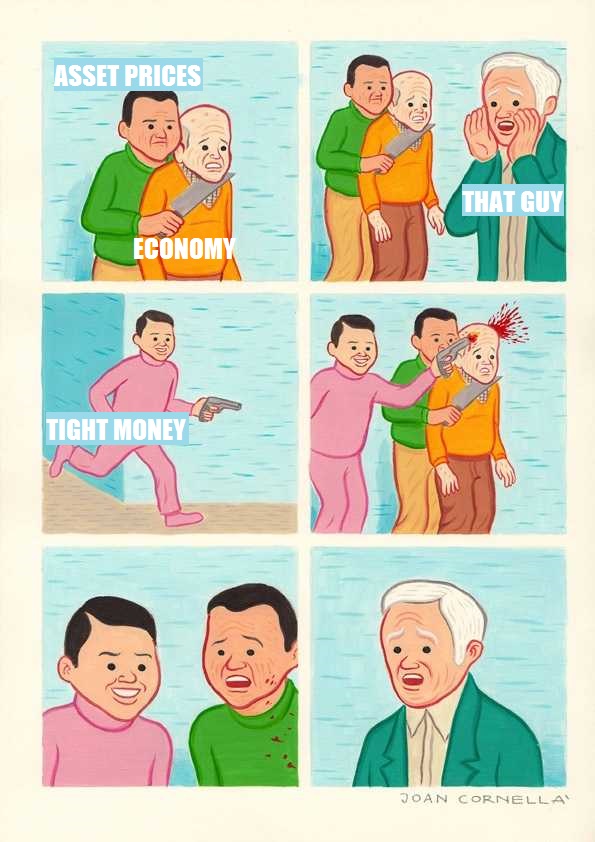Niemand.
Het begrotingstekort zal spectaculair stijgen door de coronacrisis. De overheid krijgt immers minder BTW, sociale zekerheidsbijdragen en bedrijfsvoorheffing binnen. Tegelijk geeft ze meer uit in de vorm van werkloosheidsuitkeringen en steun aan bedrijven.
Maar van waar moet het geld dan komen om dat allemaal te betalen? Hogere belastingen?
Nee. De overheid leent het tekort op de obligatiemarkten. Door de tijdelijke hulp kunnen de gezinnen en de bedrijven deze crisis met zo min mogelijk schade overleven. Op die manier zal de economie zich snel herstellen.
Een hogere staatsschuld is in deze tijden dus een vorm van goed bestuur!
Update 23/05/2020: Morgan Housel beschrijft in Who pays for this? hoe Amerika de staatsschuld aanpakte na de Tweede Wereldoorlog.
Kort samengevat: de oorlogsschuld werd nooit afgebouwd. Sterker nog, de V.S. boekten bijna ieder jaar nieuwe begrotingstekorten. Maar de economie groeide sneller dan de staatsschuld, waardoor de schuldgraad kromp.



